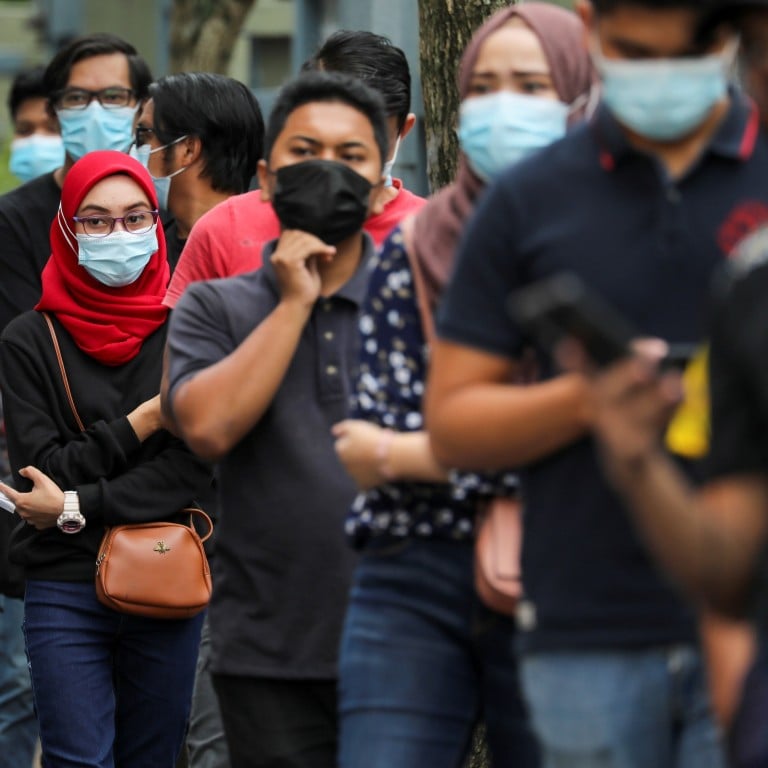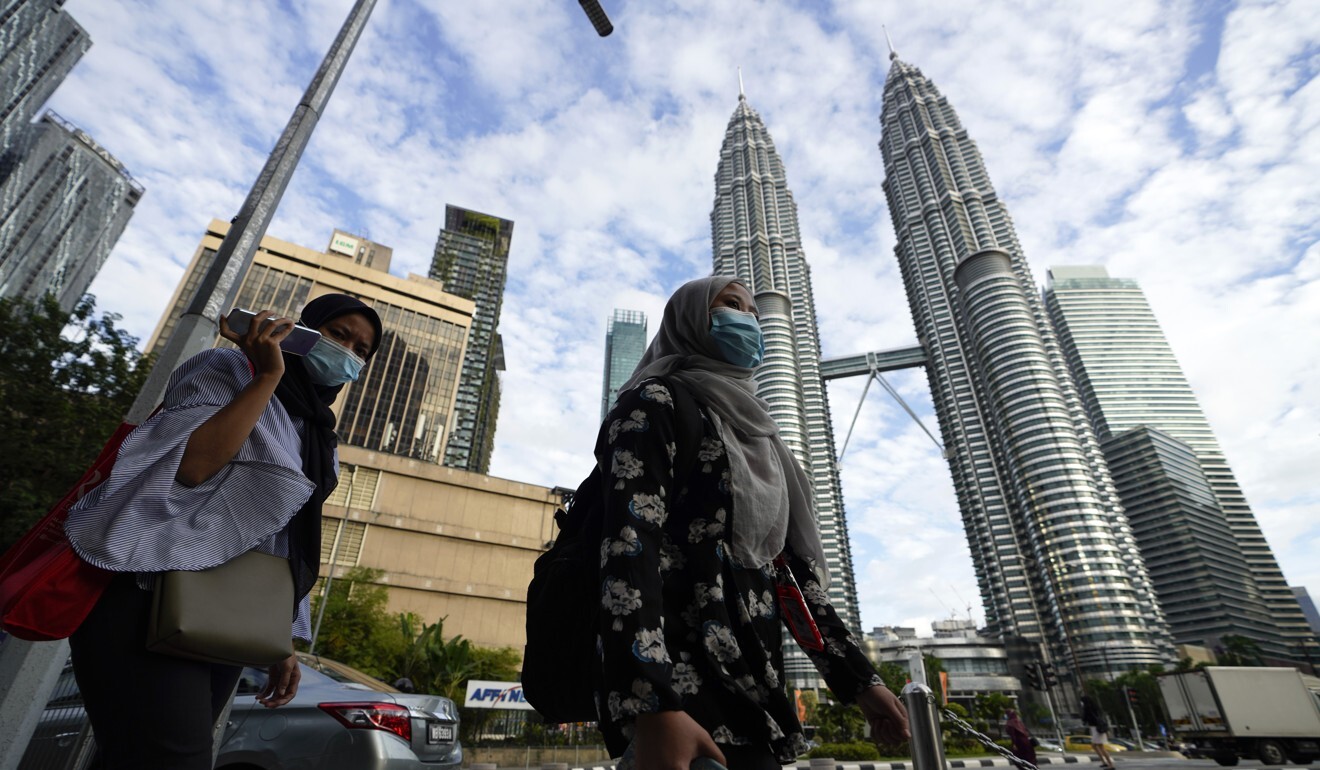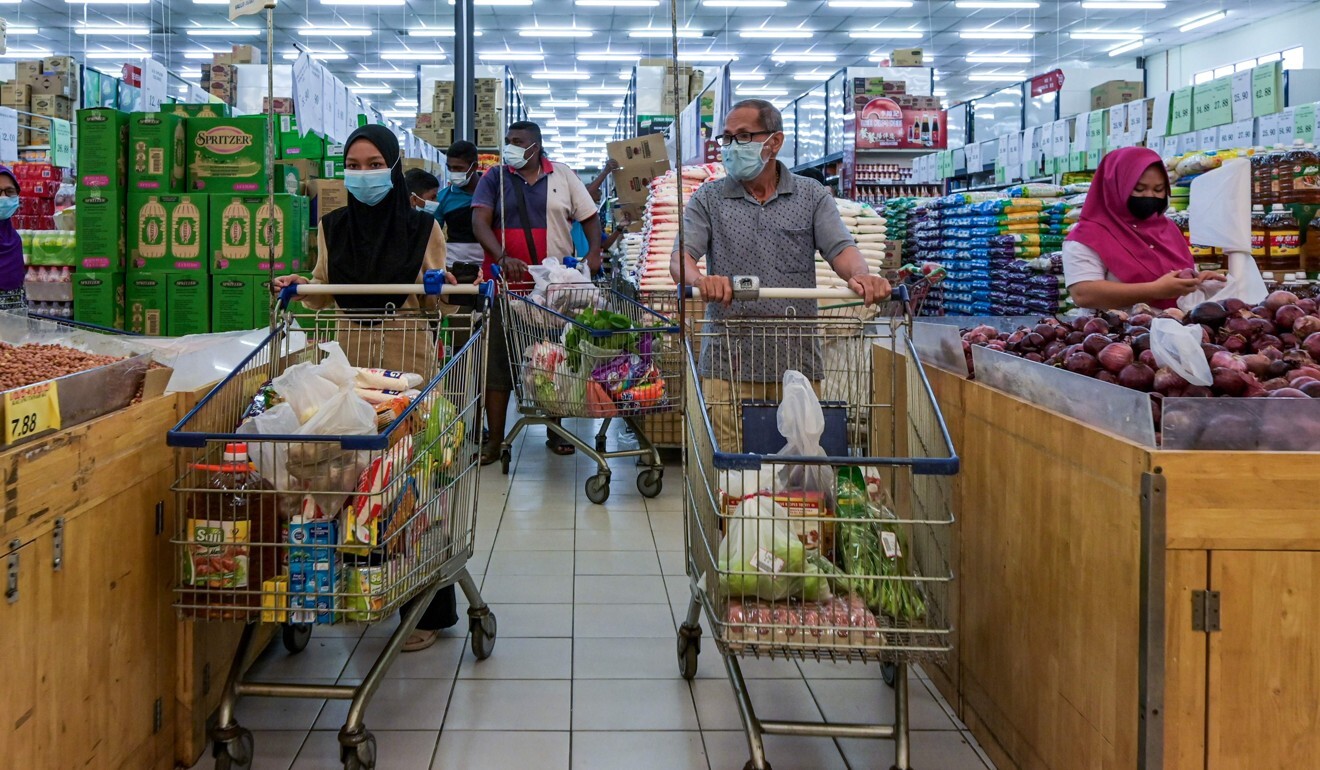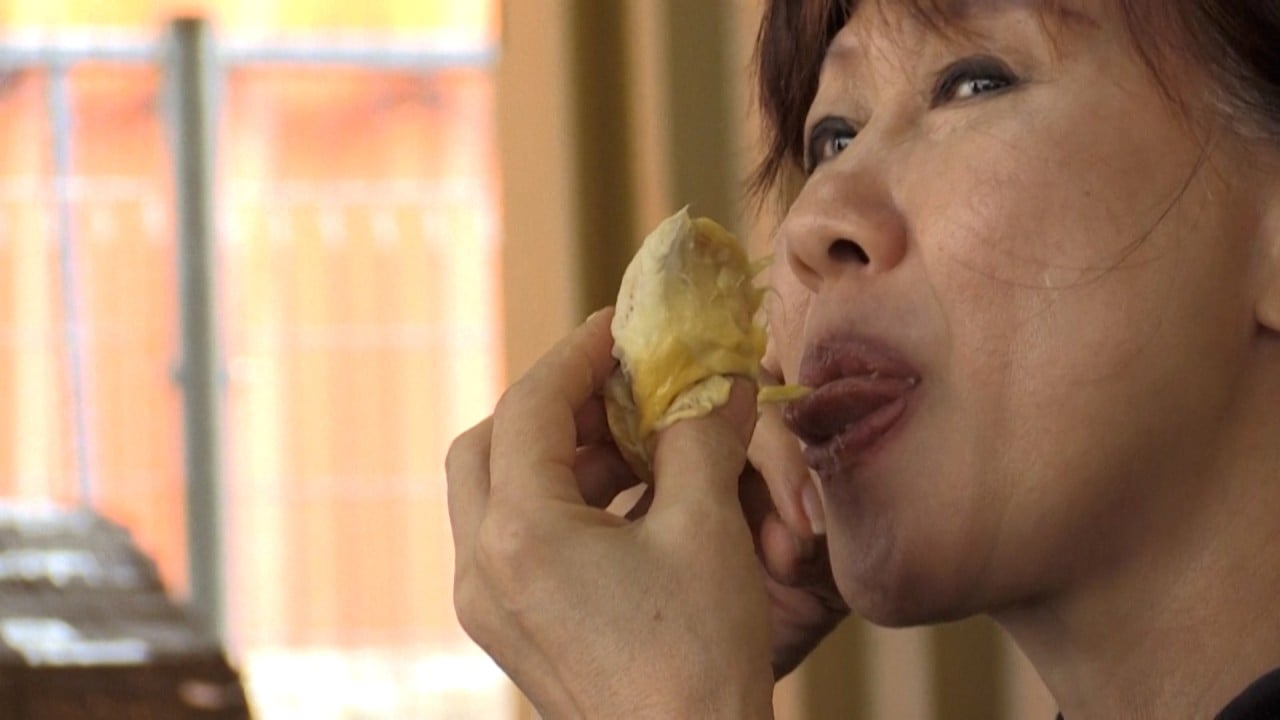
Explainer | What Malaysia’s new coronavirus lockdown and state of emergency mean for the public, and for PM Muhyiddin
- Johor, Selangor, Penang, Kuala Lumpur, Putrajaya and Labuan will face the toughest measures. All interstate travel is banned
- Muhyiddin had cited a forecast of 8,000 daily cases as a reason for the lockdown, but critics say state of emergency is politically motivated
For several weeks Malaysia has recorded daily cases in the four digits and its total caseload has now risen to nearly 140,000 infections and 555 deaths – depressing statistics for a country that at one point appeared to have brought the virus under control with a nationwide lockdown early last year.
While the new lockdown measures will last for two weeks, the state of emergency could last until August if necessary. The declaration of an emergency also means parliament will be suspended indefinitely, during which time the embattled Muhyiddin will be able to govern by fiat.
This has raised questions not only about the impact on ordinary Malaysians, but on the nation’s politics, which have been fractious since Muhyiddin’s Perikatan Nasional alliance toppled the ruling Pakatan Harapan in a political coup last February.
Malaysia’s coronavirus state of emergency gives Muhyiddin breathing room

1. HOW WILL DAILY LIFE BE AFFECTED?
This depends on the region. The wealthy states of Johor, Selangor and Penang, as well as Kuala Lumpur, the administrative capital of Putrajaya and the federal territory of Labuan will begin a strict two-week lockdown at midnight on Wednesday. Selangor in particular has been hard hit recently, recording hundreds of new cases daily.
Residents in these areas must shelter in place and can only leave their homes to purchase food and necessities within a 10km radius, or for medical emergencies. Non-essential businesses will be shut, although places selling food can operate on a takeaway basis.
The lockdowns vary in severity for other states. However, all interstate travel is banned.
The state of emergency, said Muhyiddin, would be mostly focused on keeping numbers down. There will be no curfew, economic activities are to continue and the civil service will continue to function. However, elections will not be held and parliament will not sit.

02:18
Malaysian pilot opens food stall after being laid off amid Covid-19 pandemic
2. THINGS WERE LOOKING GOOD IN SEPTEMBER, WHAT HAPPENED?
Various factors have been blamed. Though infection levels had dropped following the first, months-long, nationwide lockdown that began in March last year, elections in the Bornean state of Sabah in September saw heavy travel between the region and peninsula Malaysia by both voters and politicians, which helped to spread the virus and led to a resurgence.
A relaxing of safety measures as the economy reopened after the first lockdown also played a part. Although mask-wearing and physical distancing remained mandatory, social gatherings became noticeably more frequent.
Events such as weddings and birthday parties became relatively common once again and in one highly publicised case a group holiday of fitness studio operators led to a cluster of 40 infections.
Even politicians let their guard down, such as Federal Territories Minister Tengku Adnan Tengku Mansor who held a “drive-through” wedding reception of over 10,000 guests for his son.
3. WHY ARE THE NEW LOCKDOWNS NECESSARY?
The health ministry has warned the increase in cases has left it “at breaking point” and experts say fresh lockdowns may be the only way to stop it being overwhelmed. When Muhyddin announced the lockdown measures on Monday he cited an official forecast of daily new cases jumping to 8,000 by late March or early May as a key reason for the move.
“The virus travels when and where people travel; by restricting people’s movement, we’re also restricting the virus’ movement, which should then slow down the rise in new cases,” said Nazihah Noor of Khazanah Research Institute.
However, she said, lockdowns should not be a “go-to measure”.
“Other public health measures should be prioritised, like faster contact tracing, widespread frequent testing, stricter enforcement of workplace SOPs [standard operating procedures], ensuring sanitary living conditions for foreign workers especially those in manufacturing and construction and so on. These are harder to implement but much less costly than the cycles of lockdown and release we seem to find ourselves in.”
Malaysian Prime Minister Muhyiddin Yassin declares targeted Covid-19 lockdowns
Khor Swee Kheng, a health systems and policies specialist, agreed the new lockdowns could bring down infection levels. However, he said lockdowns needed to last four to six weeks to have an effect and any gains would come at a cost.
“The government must use the time gained from the second movement control order to dramatically improve the pandemic response. A basket of solutions is needed, such as a clearer testing strategy incorporating rapid testing kits and PCR, and more digital contact tracing from the current mostly manual operations.”
Without dramatic improvement, the experts warned, the nation risked needing repeated lockdowns in a multi-year pandemic.

4. WHAT ABOUT THE EMERGENCY? WHAT DOES IT MEAN FOR POLITICAL LIFE?
Some critics have said the state of emergency – as opposed to the lockdowns – makes little difference to the health situation. Instead, they say, it is really meant to benefit Muhyiddin because he is facing a loss of confidence in parliament, which could trigger elections.
“The targeted lockdowns should suffice. The emergency is purely politically motivated,” said political scientist Azmil Tayeb.
Opposition lawmaker Charles Santiago was blunt: “Let’s get this straight: yes the government needs to buck up to nip the rising cases of Covid-19 but no, it doesn’t need to declare an emergency to do its job right, for once.”
Analyst Awang Azman Awang Pawi said Muhiyiddin was now safe from the possibility of his Perikatan Nasional government collapsing. He pointed to Muhyiddin’s fractious alliance with the nation’s largest party the United Malays National Organisation (Umno), which was toppled in 2018.
Umno has recently said it plans to cut ties with Muhyiddin’s nationalist Bersatu party and has been pushing for snap polls. Such a split would be disastrous for Muhyiddin, because Umno has the support of most ethnic Malays, the largest voting bloc.
However, said Awang, the state of emergency had left Umno “checkmated, because nothing significant can be done during state of emergency”.

01:46
Malaysia’s durian sellers see boom in online orders during coronavirus lockdown
5. IS THERE LIGHT AT THE END OF THE TUNNEL?
From a health perspective, yes. Malaysia is expecting its first delivery of vaccines in late February. Despite several mutations of the virus, scientists are still confident the vaccines will be effective.
“If we can administer these vaccines safely to all those eligible to receive them in the population, we can end the pandemic,” said Nazihah.
“One of the advantages of us being behind other countries in starting our vaccination campaigns is that we can learn from their experiences. Among others things, we can learn about who should be prioritised, how to reach remote areas, and how to avoid unintended wastage.”

